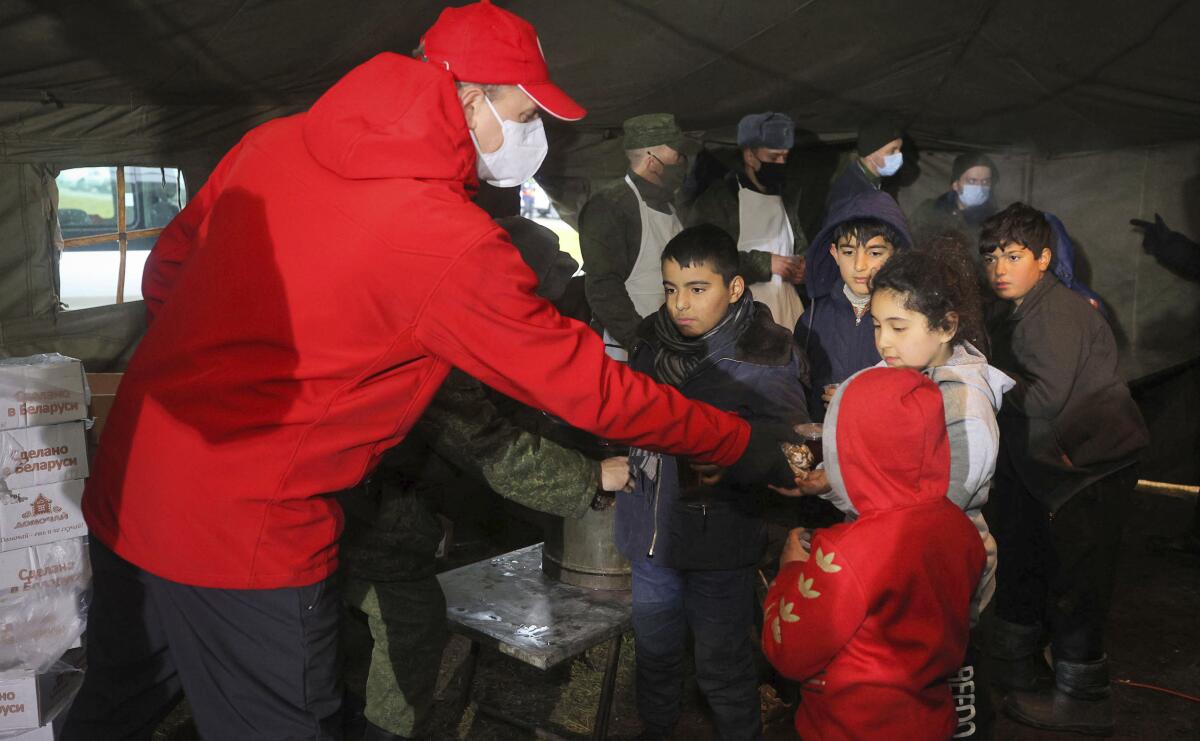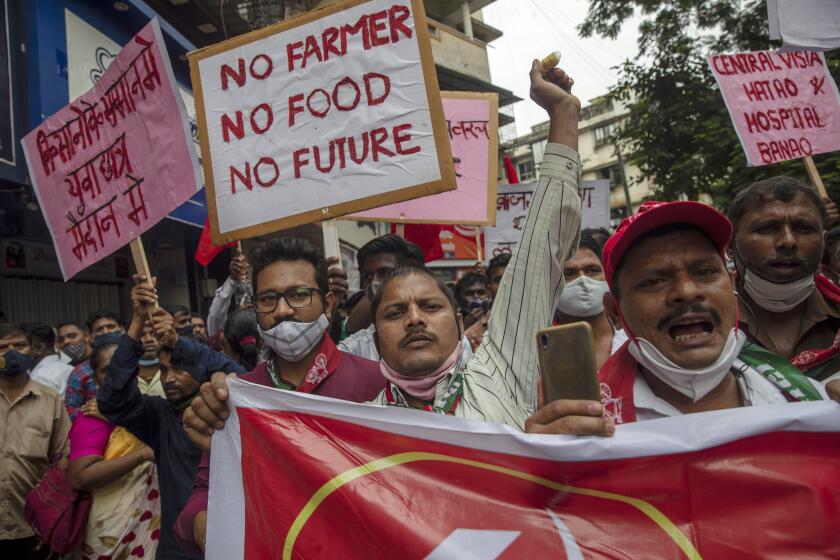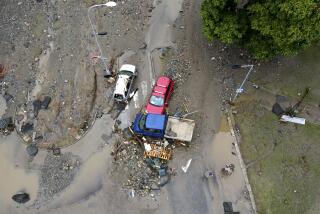Poland: Migrant camps along Belarus border have emptied

- Share via
WARSAW, Poland — Polish authorities said Friday there are no more migrants camping along the Belarus side of the European Union’s eastern border, but attempts at illegally crossing into the bloc’s territory are continuing and becoming more aggressive.
And Ukraine, which also borders Belarus, said it would build a border fence and ditch, and hold military drills to forestall any attempted influx of migrants.
Around 50 migrants got through a fence into EU member Poland on Thursday, Anna Michalska, a spokeswoman for Poland’s Border Guard said. They included a family of five who said they wanted to stay in Poland, opening a procedure toward settlement. The others will have to return to Belarus, Michalska said.
Two other large groups of migrants were prevented from entering. Some migrants have thrown stones and used tree branches to hit Polish border guards.
Hundreds of Iraqis flew back home Thursday from Belarus after abandoning their hopes of reaching the EU.
On the day of a Sikh festival and on the eve of elections, Prime Minister Narendra Modi says he’ll repeal farm laws that led to massive protests.
Still, many migrants remained in a heated warehouse that Belarus recently made available near the border. They had been camping in a cold and wet forest since Nov. 8.
A charity collection was held in Michalowo, near Poland’s border with Belarus, with local people and some from across the country bringing clothes, blankets, food, toys and other items for hundreds of migrants who have entered Poland.
Konrad Sikora, deputy mayor of Michalowo, told the Associated Press the reaction the charity is getting from all around Poland “is tremendous, it’s great, and I think we are helping those people really, really deeply.”
Some migrants, the most needy, are still in the damp woods, others are in hospitals or in guarded centers for foreigners, waiting for their international protection applications to be processed. In most cases they are rejected.
NATO Secretary-General Jens Stoltenberg on Friday reiterated his warning that the situation on the border represents a security challenge.
“We are ready to provide support,” Stoltenberg told reporters in Berlin.
He welcomed ”the fact that Iraq is now taking back people and have stopped” flying migrants to Belarus.
He also noted that NATO has seen “a significant military buildup by Russia close to the borders of Ukraine [with an] unusual concentration of forces.”
“We call on Russia to be transparent and to prevent an escalation and to help and to reduce the tensions along the borders with Ukraine,” Stoltenberg said.
Meanwhile, Poland’s President Andrzej Duda, on a visit to North Macedonia, said that in recent talks with Stoltenberg he has “indicated all possible hypothetical military threats” that might emanate from Belarus.
“I believe that ... we are going to overcome this crisis and that the Belarusian regime is going to stop its hybrid attacks against our countries,” Duda said.
Poland has notified Belarus it intends to halt railway freight traffic at the border crossing near Kuznica on Sunday, out of security concerns, due to the continuing presence of migrants at the warehouse there. Road traffic was stopped there last week.
Tensions flared at the Poland-Belarus border in recent days, with about 2,000 people trapped between forces from the two countries. On Tuesday, Polish forces at the border used water cannons and tear gas against stone-throwing migrants. Warsaw accused the regime of Belarusian President Alexander Lukashenko of giving smoke grenades and other weapons to those trying to cross the frontier.
The U.N. refugee agency says about half the migrants at the border area were women and children.
The standoff set alarm bells ringing in the region. The West has accused Belarus President Alexander Lukashenko of using the migrants as pawns to destabilize the EU in retaliation for its sanctions on his authoritarian regime. Belarus denies engineering the crisis, which has seen migrants entering the country since last summer and then trying to cross into Poland, Lithuania and Latvia.
In an interview with the BBC published Friday, Lukashenko said that it is “absolutely possible” that his forces helped migrants cross into Poland, but he denied the migrants were invited and insisted: “I don’t want them to go through Belarus.”
“We’re Slavs. We have hearts. Our troops know the migrants are going to Germany,” Lukashenko told the BBC. “Maybe someone helped them. I won’t even look into this,” he said.
Ukraine, which borders both Belarus and Russia, said Friday it would build a 1,550-mile fence along its border with those neighbors to help fend off any illegal influx of migrants.
Funds should be allocated next year for the building of the fence that will cost about $640 million, Minister of Internal Affairs Denys Monastyrskiy said.
“Building a fence, a net and barbed wire, with a total coverage by surveillance and alarm systems, along the entire border ... is the most rational decision,” Monastyrskiy said, speaking in the Ukrainian parliament.
Ukrainian authorities also plan to dig out a 13-foot wide and 6.5-foot deep ditch on the open parts of the country’s border with Russia and Belarus.
The country is planning military exercises in the next two weeks to prepare for attempts by migrants to illegally cross into it.
“Our key goal is to stop and contain a possible mass influx of illegal migrants,” Monastyrskiy said.
On Friday, Ukrainian authorities reported intercepting a group of 15 people of Middle Eastern descent attempting to cross into Ukraine from Belarus — the first such incident on the Ukrainian border since the crisis flared up.
More to Read
Sign up for Essential California
The most important California stories and recommendations in your inbox every morning.
You may occasionally receive promotional content from the Los Angeles Times.











